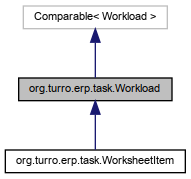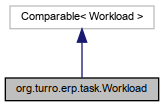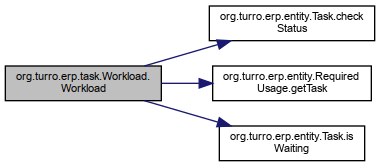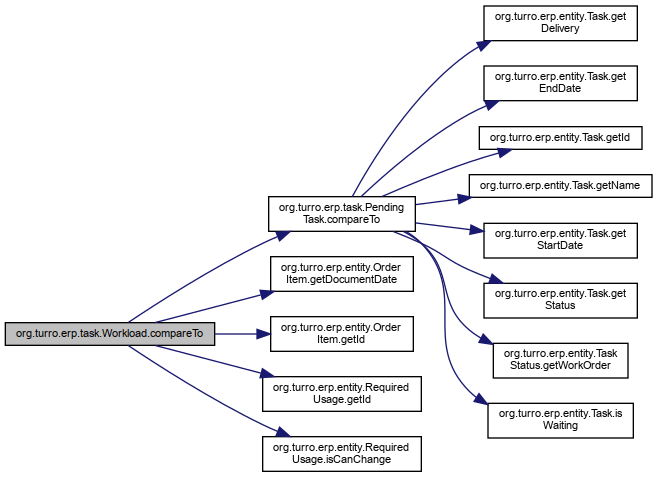- Author
- Lluis Turró Cutiller lluis.nosp@m.@tur.nosp@m.ro.or.nosp@m.g
Definition at line 31 of file Workload.java.
◆ Workload() [1/2]
| org.turro.erp.task.Workload.Workload |
( |
RequiredUsage |
requiredUsage | ) |
|
Definition at line 39 of file Workload.java.
40 this.requiredUsage = requiredUsage;
boolean checkStatus(Date now)
◆ Workload() [2/2]
| org.turro.erp.task.Workload.Workload |
( |
OrderItem |
orderItem | ) |
|
Definition at line 46 of file Workload.java.
47 this.orderItem = orderItem;
RequiredUsage getOwnerRequiredUsage()
◆ compareTo()
| int org.turro.erp.task.Workload.compareTo |
( |
Workload |
o | ) |
|
Reimplemented in org.turro.erp.task.WorksheetItem.
Definition at line 86 of file Workload.java.
88 if(orderItem !=
null) {
89 result = -CompareUtil.compare(orderItem.
getDocumentDate(), o.orderItem.getDocumentDate());
91 result =
new PendingTask(task).compareTo(
new PendingTask(o.task));
94 result = CompareUtil.compare(orderItem.
getId(), o.orderItem.getId());
97 result =
new PendingTask(task).compareTo(
new PendingTask(o.task));
99 result = CompareUtil.compare(!requiredUsage.
isCanChange(), !o.requiredUsage.isCanChange());
102 result = CompareUtil.compare(requiredUsage.
getId(), o.requiredUsage.getId());
◆ getOrderItem()
| OrderItem org.turro.erp.task.Workload.getOrderItem |
( |
| ) |
|
◆ getOrderUnits()
| double org.turro.erp.task.Workload.getOrderUnits |
( |
| ) |
|
◆ getRequiredUsage()
◆ getTask()
| Task org.turro.erp.task.Workload.getTask |
( |
| ) |
|
◆ isChecked()
| boolean org.turro.erp.task.Workload.isChecked |
( |
| ) |
|
◆ setChecked()
| void org.turro.erp.task.Workload.setChecked |
( |
boolean |
checked | ) |
|
◆ setOrderUnits()
| void org.turro.erp.task.Workload.setOrderUnits |
( |
double |
orderUnits | ) |
|
Definition at line 73 of file Workload.java.
74 this.orderUnits = orderUnits;
◆ setTask()
| void org.turro.erp.task.Workload.setTask |
( |
Task |
task | ) |
|
The documentation for this class was generated from the following file:




